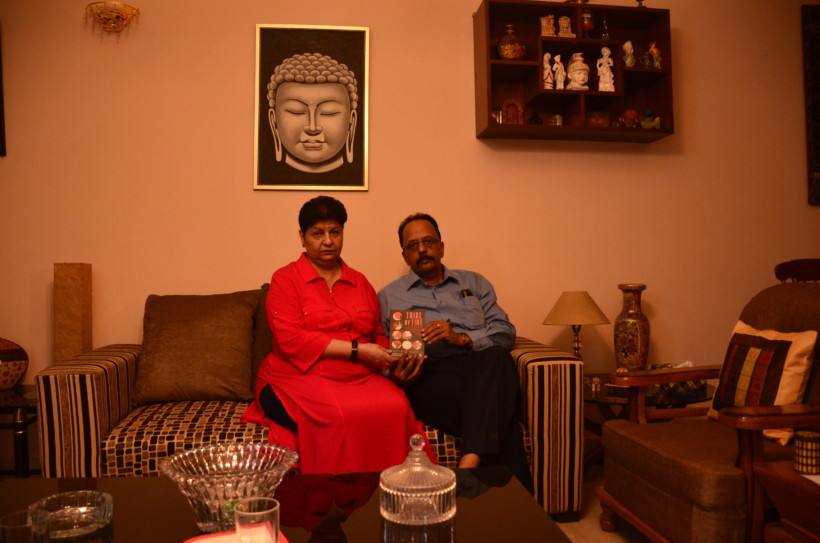By Somrita Ghosh
New Delhi–There can be no greater catastrophe for parents than losing their children. The pain is irreparable and the grief cannot be overcome, yet it is the zest to seek justice that is keeping Neelam and Shekhar Krishnamoorthy alive, a book written by the couple says.
“Trial by Fire” (Penguin/Rs 299/pp 251) is an honest and first-hand account of the Krishnamoorthys who lost both their children in the tragic fire in the Uphaar cinema in 1997.

“On August 19, 2015, when the Ansals (the owners of the cinema hall) were allowed to walk out on bail, I lost faith in the judiciary system. I am left with no hope for justice. I lost faith in God on June 13, 1997, when I lost both my children. I had some amount of faith left while fighting for justice, but now no more,” Neelam Krishnamoorthy told IANS in an interview.
Life since then hasn’t held any meaning for them, it is just the legal battle for justice that is keeping them alive.
“Frankly speaking, we don’t have any desire to live; we don’t go anywhere, don’t celebrate, don’t attend weddings or parties. Life without our children is something which no parent can bear,” she said in a slightly choked voice.
“We have promised our children they would get justice and we will go till the end to get justice. You can’t really stop being parents to children even if they are not around. Parents would go to any extent for their children,” Shekhar added.
The Uphaar fire claimed the lives of 59 people and severely injured 103. Unnati, the Krishnamoorthys’ elder child, was 17 years old and the younger, Ujjwal, was 13 years old wen the tragedy happened.
In November 2007, a trial court sentenced the Ansal brothers to two years’ rigorous imprisonment. However, in December 2008, the Delhi High Court reduced this to a one-year jail term.
The Supreme Court, on August 19, 2015, released them on bail subject to their paying a fine of Rs 60 crore ($9 million). Considering their age and the period already spent by them in prison, the apex court decided not to send them back to jail. The case, however, continues as there are a number of other parties, including the licensing wing of the Delhi Police, involved.
On November 7, 2016, the Ansals urged the Supreme Court for an early hearing of their plea for de-sealing of the Uphaar cinema hall.
The park opposite to the cinema hall is now looked after by the Association of Victims of Uphaar Fire Tragedy (AVUT), which took it over from the Municipal Corporation of Delhi (now South Delhi Municipal Corporation) and named it Smriti Upavan. Every year, the Krishnamoorthys and the families of the other victims hold a candle-light vigil at the park.
The Krishnamoorthys formed AVUT soon after the tragedy to fight the matter in court, which they have been doing for the past 19 years.
“When we began, even we were unaware of the legal details. We too had to study legal details as the court proceedings began. We have talked about the entire judicial process in the book,” Shekhar pointed out.
“The bail was a real setback for us. Morally, we had lost all hope. Though the case was taking time, we knew it was going on the right path when the hearings were conducted in the lower court. But the Supreme Court disappointed us,” he added.
Asked what the Indian judicial system lacked for ensuring justice, Neelam said: “It is the adjournment system that delays hearings. I have seen court sessions getting adjourned for silly reasons like the accused is fasting and so couldn’t attend the hearing or the accused couldn’t park his car and so failed to be present at the court. I was surprised all these pleas were accepted.”
Neelam even writes that she would rather have shot the Ansals instead of battling it out in court.
“Yes I have written it and I mean it. It would have been better for us because we would have then pleaded guilty on grounds of insanity. At least, I would then have had the satisfaction of knowing that I got justice for my children. The life we are living is even worse than a death sentence. Knowing that they are guilty and see them walk away is really frustrating,” she asserted. (IANS)














